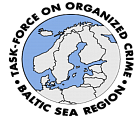RIA NOVOSTI INTERVIEW WITH ALEXANDER YAKOVENKO, AN OFFICIAL FOREIGN MINISTRY SPOKESMAN, ON JULY 7-8 VISIT TO RUSSIA BY FRENCH FOREIGN MINISTER DOMINIQUE GALOUZEAU DE VILLEPIN
Question: French Foreign Minister Dominique Galouzeau de Villepin arrives in Moscow on July 7. What could you say about the purpose of his visit?
Answer: This is the first time that a French diplomatic head is arriving in Moscow since a new centre-right government was formed in France. Villepin has already met with Igor Ivanov at Reykjavik and Whistler. The next bilateral meeting in Moscow will be an important step along the road of deepening the Russian-French partnership. The priority character of this task was highlighted by French President Jacques Chirac during his election campaign. Over recent years the political dialogue between our countries has visibly brisked up. The sides proceed from the assumption that this trend is going to strengthen as France goes over to new domestic political realities.
In the course of coming negotiations between Villepin and Russia's Foreign Minister Igor Ivanov it is planned to discuss current international issues and bilateral relations, in particular those bearing on the Russian-French Security Council, under the chairmanship of foreign and defence ministers, being created in accordance with a decision of the Russian and French presidents. Russian-French coordination in external political affairs rests on the closeness of the two countries' approaches to key issues of strategic stability and international security, and settlement of regional conflicts (Middle East, Afghanistan, Indian-Pakistani confrontation).
The ministers will exchange views on ways of implementing the decisions of the recent high-level meetings of the G-8, Russia-EU and Russia-NATO. Course of preparations for the forthcoming visit to Russia by French President Jacques Chirac will be examined.
Question: Is it planned, during negotiations between the two foreign ministers, to touch on Russia-EU relations?
Answer: The success of Russian-French coordination of efforts, including in trade and economic matters, is directly linked to how successfully relations develop between Russia and the European Union. President Jacques Chirac has repeatedly expressed himself in favour of closer teamwork between the European Union and Russia, looking at our country as a global EU partner. Such an approach meets the interests of both Russia and the EU.
Accordingly, talks between the ministers will focus on a statement made at the May Russia-EU summit by the leadership of the Commission of European Communities on their readiness to grant Russia the status of a market economy. Russia is for this statement to be implemented in practice as soon as possible and for this problem to disappear from the agenda of our relations with the European Union in the very near future.
Within the framework of relations between Russia and the European Union humanitarian issues will also be discussed. In particular, the recent Moscow Russia-EU summit demonstrated particularly vividly the sensitivity of the problem of vital supplies to the Kaliningrad region. France's support for the solution of this problem would be a real example of Russian-French privileged partnership. The assumption in Russia is that such a country as France, which has its own overseas departments and territories, should more than other EU countries be aware of the appropriate Russian concern.
Equally urgent for Russia is the position of Russian-speaking population in the Baltic countries, especially in the context of the European Union's enlargement. Although certain shifts have taken place under pressure from Russia and the international community, in particular in Latvian legislation, the course towards gradual assimilation of so-called "non-titular" nations in the Baltics continues, let alone the problem of "non-citizens".
Question: What attention will be given at the forthcoming negotiations to the theme of cultural cooperation?
Answer: It is supposed that the sides will discuss various aspects of Russian-French cooperative efforts in the field of culture. In particular, France was among the first to announce its initiative of participation in celebrating the 300th anniversary of St Petersburg. At present a format of bilateral jubilee projects is being agreed upon.

